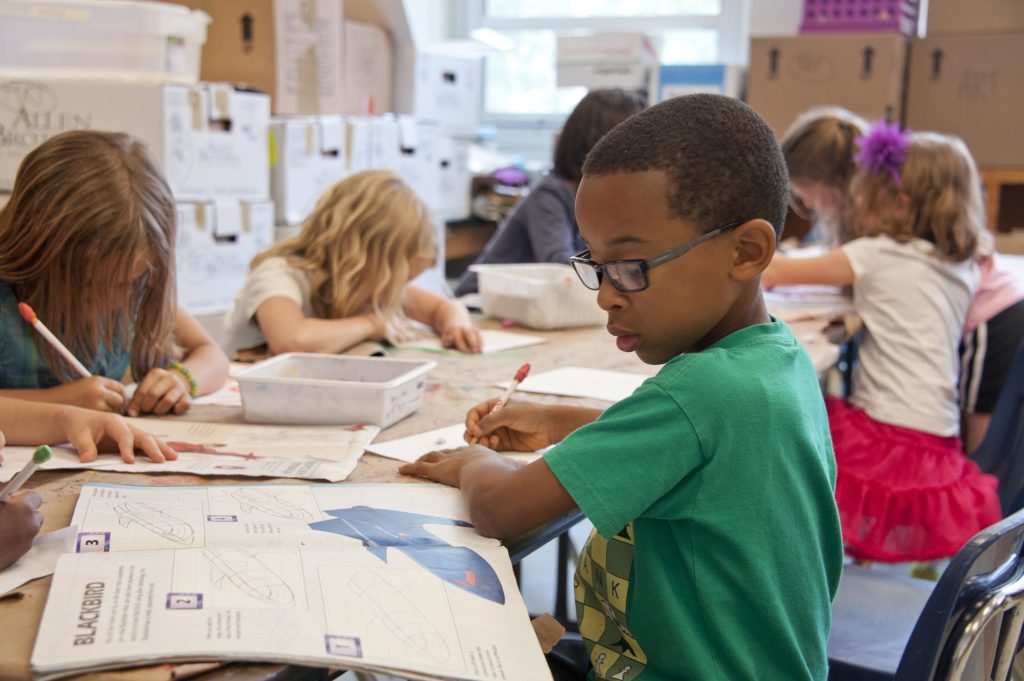K-12 Schools Budget a Historic Balancing of Funding for All Michigan Schools, Proponents Say
Districts are happy overall with the $11.7 billion plan, but school officials were doing a lot of guesswork right up to this moment as lawmakers went down to the wire on approval.

State lawmakers have left Lansing for the summer without completing the state’s budget. But they did approve one important part of the budget that the Legislature did send to the governor’s desk before leaving town.
While the kids have been saying goodbye to their teachers and their books, the state Legislature has been trying to sort out how much to spend on K-12 schools next year. Last Wednesday — June 30 — they finally cracked it. That’s on the same day schools were required to submit their own budgets.
Subscribe to MichMash on iTunes, Spotify, Google Podcasts, NPR One or wherever you get your podcasts.
The Legislature approved a 10% increase in K-12 spending over the current year. The total plan is $17.1 billion for K-12 schools, which proponents say is a historic balancing of funding for all districts in the state.
But lawmakers really went down to the wire on this one, which caused a lot of stress among school officials. That’s because schools have to submit their budgets by June 30 or else face fines.
That means school districts have still been doing a lot of guesswork up to this moment.
Schools just went through the worst of trying to adapt to educating kids during a deadly pandemic this past year. Ken Gutman, superintendent of Walled Lake Consolidated Schools and the president of the K-12 Alliance of Michigan, says the pandemic forced them to try to staff and then re-staff as schools did throughout the pandemic. Trying to staff up again without knowing what money is coming from the state, he says, could be potentially hazardous for many districts.
“We feel like we’re able now to make good decisions. But for those who may have chosen a different number, or may have done a little more guessing in terms of what might come from the state, certainly they’re a little bit behind right now.” –Ken Gutman, Walled Lake Consolidated Schools
“For example, let’s say we staff pretty heavily, we’re ready to go, and our budget doesn’t allow us to hire the same number of people we’ve just hired,” Gutman says. “Well, now we’re laying people off. We’re not doing what’s best for kids. We’re not allocating our funds appropriately. We’re spending money on unemployment. So, it puts districts in a precarious position to not know how much money there is in advance.”
Gutman says he and his schools are happy overall with what’s in the budget, although he noted it doesn’t fix all the structural issues that schools have had for a long time. And he says schools that didn’t guess correctly on their budgets ahead of time are probably still behind on their budgeting this summer, even though lawmakers did technically pass this budget before July 1.
“In our case, for example, in Walled Lake we budgeted conservatively,” says Gutman. “We budgeted $100 increase per student. In Walled Lake, we’re seeing a $171 increase per student. So we feel like we’re able now to make good decisions. But for those who may have chosen a different number, or may have done a little more guessing in terms of what might come from the state, certainly they’re a little bit behind right now.”
One of the big things in the budget is that the minimum funding per pupil in this would be $8,700 per student for all districts, and supporters of the bill say that that goes a long way toward closing funding gaps between districts.
“Today, we’re happy. But certainly a year from now, a less than inflationary increase puts us back in a really difficult position again, and ultimately, that hurts children.” –Ken Gutman, Walled Lake Consolidated Schools
The new K-12 budget also includes a big investment in the state’s Great Start Readiness Program, which offers free preschool for low-income Michiganders. Gov. Gretchen Whitmer says the state will be able to expand the program for 22,000 more children. And it also includes $240 million for school nurses and counselors.
One of the reasons lawmakers are able to make this big investment in schools in this budget is because the state is seeing big budget surpluses as the economy reopens as the pandemic recedes. Although districts are happy with this budget, there is concern about what happens next year when the state might not have the same kind of surpluses that it can funnel into schools.
“We’re really nervous about that,” says Gutman. “Next year could mean very low, below inflationary increases for a lot of school districts that formerly had some decent increases. So we’re nervous. We’ll get to work on that starting tomorrow.”
“I’d like to see our Legislature take a look at how we fund our schools overall,” he continues. “Today, we’re happy. But certainly a year from now, a less than inflationary increase puts us back in a really difficult position again, and ultimately, that hurts children.”
More from MichMash:
To Fix Labor Shortage, the Service Industry Needs to Start Humanizing Workers, Restaurant Owner Says
Michigan Elections Officials Leaving Jobs in High Numbers Amid Threats, Harassment
Officials Look for Ways to Fix Michigan’s Juvenile Justice System
Despite Bipartisan Support, Michigan Lawmakers Balk at Funding Criminal Justice Initiatives
